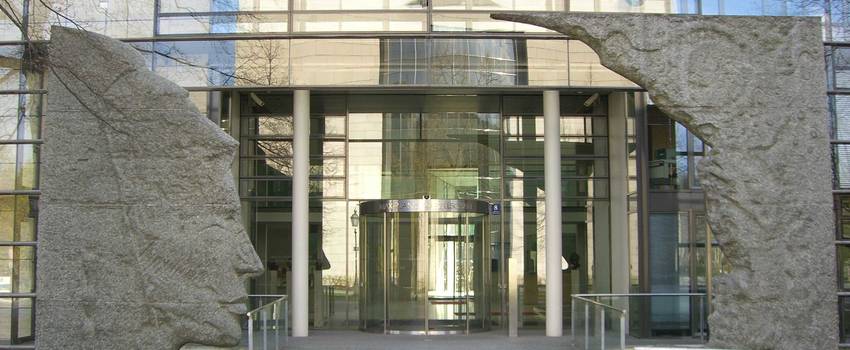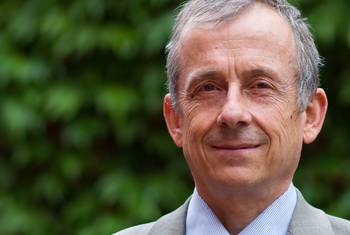Patrick Roberts What Can We Learn from Studying Homo sapiens’ First Moves into Tropical Forests?
Based in the Department of Archaeology at the Max Planck Institute for the Science of Human History, Patrick Roberts is Group Leader of its recently established Stable Isotope Research Group. Having completed his BA, MSc and DPhil at the University of Oxford, Roberts’ main research interests include Stable Isotope Ecology and Geochemistry; Tropical Rainforest Archaeology, Ecology and Conservation and the evolution and dispersals of Homo sapiens. The recipient of several prestigious awards from both the Max Planck Society and the University of Oxford, Roberts’ monograph Tropical Forests in Prehistory, History, and Modernity will be published by Oxford University Press in 2019.
Area of Research
Stable Isotope Ecology, Stable Isotope Geochemistry, Homo sapiens Evolution and Dispersals, Tropical Rainforest Archaeology, Tropical Rainforest Ecology, Tropical Rainforest Conservation, Palaeoclimate and Palaeoenvironment Reconstruction.
since 2016
Group Leader (Department of Archeology)
Max Planck Society (more details)
Max Planck Institute for the History of Science
since 2017
Temporary Lecturer and Habilitation Candidate
Friedrich Schiller University Jena (Friedrich-Schiller-Universität Jena)
since 2017
Research Affiliate
University of Bergen
SAPIENCE project
2016
DPhil in Archaeological Science
University of Oxford
2013
MSc in Archaeological Science
University of Oxford
2012
BA in Archaeology and Anthropology
University of Oxford
- Invited Editorial Board Member, Quaternary International (2018)
Prizes
- Beutenberg Campus Award for Best Young Scientist, Beutenberg Campus, Jena (2018)
- Boise Fund Award, University of Oxford (2014, 2016)
- PAST Paper Award, Society of African Archaeologists (2014)
- Max Planck President’s Grant Award “A living archaeology in the Amazonian rainforests: First use of tree DNA and chronological profiling to reconstruct prehistoric human rainforest disturbance” (2017)
- Max Planck Society Large Equipment Award: Purchasing of a Gas Chromatography Mass Spectrometer and a Gas Chromatography Combustion Isotope Ratio Mass Spectrometer (2016)
- Max Planck Society Large Equipment Award: Purchasing of two Elemental Analysers with Isotope Ratio Mass Spectrometer and Gasbench II with Isotope Ratio Mass Spectrometer (2016)
- Natural Environmental Research Council Scholarship: “A Sri Lankan perspective on the palaeoenvironmental context of the early humans of South Asia and its bearing on behavioural ‘modernity" (2013)
- Clarendon Society and Santander Scholarship: “Palaeoenvironmental reconstruction in Pleistocene South Africa” (2012)
 © Maximilian Dörrbecker
© Maximilian Dörrbecker
Max Planck Society
"The Max Planck Society is Germany's most successful research organization. Since its establishment in 1948, no fewer than 18 Nobel laureates have emerged from the ranks of its scientists, putting it on a par with the best and most prestigious research institutions worldwide. The more than 15,000 publications each year in internationally renowned scientific journals are proof of the outstanding research work conducted at Max Planck Institutes – and many of those articles are among the most-cited publications in the relevant field." (Source)
Institute
Max Planck Institute for the Science of Human History
The Max Planck Institute for the Science of Human History conducts basic research using modern analytical methods with the aim of a multidisciplinary and integrated science of human history. It seeks to bridge the gap between historical disciplines and the natural sciences. Scientists from a range of fields, such as biology, linguistics, archaeology, anthropology and history jointly work on innovative methods, in particular in the fields of cutting-edge genetic and proteomic sequencing, bioinformatics, archaeological science, computational modeling, language databases, and phylogeography. This thoroughly integrated, interdisciplinary approach will address long-standing questions about human history – including some previously deemed difficult, or even completely intractable – as well as novel questions inspired by the new horizons that cutting edge methods open up. (Source)
Map
In popular culture as in traditional archaeology, the tropical forest has been assumed to represent an environment inhospitable to humans. In this video, PATRICK ROBERTS challenges this view, demonstrating not only that Homo sapiens moved into tropical forests much earlier than previously thought but also that significant agricultural and urban societies existed in these places in the ancient past. Employing techniques including Stable Isotope Analysis, Paleoenvironmental Lake Coring, and LIDAR, by providing us with a better understanding of early man’s impact on tropical forest environments, the research seeks to help us to consider how to best preserve and protect these vital components of our planetary ecosystem.
LT Video Publication DOI: https://doi.org/10.21036/LTPUB10699
Defining the ‘Generalist Specialist’ Niche for Pleistocene Homo Sapiens
- Patrick Roberts and Brian A. Stewart
- Nature Human Behaviour
- Published in 2018







